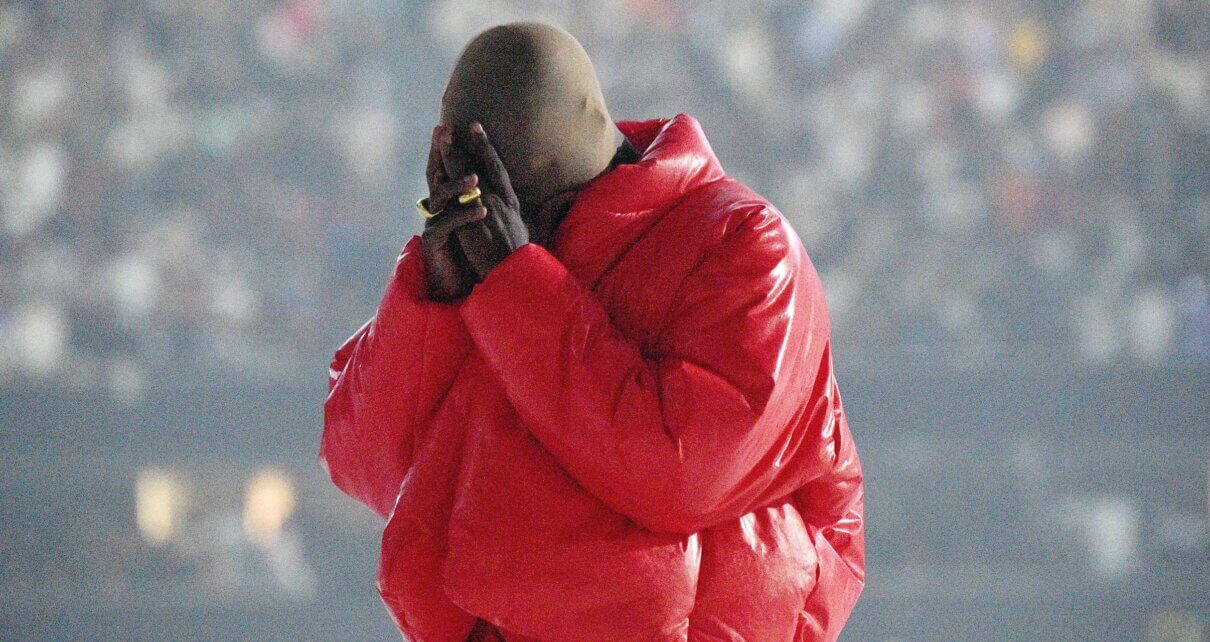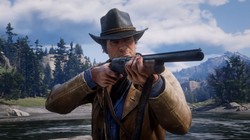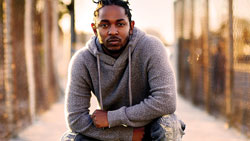Image: Kevin Mazur / Getty
In October 2019, super-celebrity and contemporarily born-again Christian Kanye West dropped his ninth solo album, the strictly gospel Jesus Is King. Coming off a fully public spiritual awakening, West had enlisted the help of his Sunday Service Choir to produce his interpretation of the gospel.
While fans weren’t entirely surprised by his trajectory considering the circumstances of his private life, the abrupt pivot of genre from hip-hop to gospel left some scratching their heads and others with a tepid feeling; though Jesus Is King ushered in a new era of West’s music, and though the production is undeniably his work, it wasn’t exactly what die-hard Ye fans wanted to hear—and I may have insight as to why.
Recall that, in the summer of 2018, Kanye worked on five separate projects as part of the so-called “Wyoming sessions.” These were Pusha T’s Daytona, his own Ye, Kids See Ghosts with Kid Cudi, Nas’ Nasir, and Teyana Taylor’s debut K.T.S.E. These thirty-minute-or-less albums were all dropped to widespread acclaim, not the least of which being Ye, which so obviously drew upon the gospel for inspiration. Week after week of that summer, Kanye and the artists for whom he produced treated fans to nicely compacted records that were simultaneously easily digestible and completely boundary-pushing.
However, that string of projects would—not even considering his unsuccessful presidential bid and impending divorce from Kim Kardashian, among other things—undeniably take a severe toll on West’s mental health. While he parted ways (for the moment) with rap and found gospel, I think fans were frankly left dissatisfied with a large part of his latest public undertakings. So, while Jesus Is King no doubt helped Kanye West heal his spirit, it left a lot to be desired by day-one fans, and many were left in the dark wondering if he would ever return to hip-hop in earnest.
So, a month or so after Jesus Is King was dropped, it came as a somehow underwhelming and exciting surprise when Dr. Dre tweeted a picture of himself in the studio, working with Kanye on yet another ostensible gospel album: “Ye and Dre Jesus is King Part II Coming Soon,” read the tweet. Clearly, gospel was here to stay for Ye (although that album with Dre never actually materialized), as he would go on to release Jesus Is Born with the Sunday Service Choir on Christmas of 2019.
More news of possible music came when, in May 2020, visual artist and Kanye West collaborator Arthur Jafa perhaps unintentionally revealed to French designer Michèle Lamy during an Instagram Live stream that he was working on a project for West’s newest album. Jafa explained, “It’s called God’s Country and this will be, like, the first single, I guess, off of it. I don’t know if I’m supposed to not be announcing it or whatever. I may just be spilling the beans.”
The existence of God’s Country was subsequently confirmed beyond a shadow of a doubt by West himself when “Wash Us in the Blood” featuring Travis Scott arrived at the end of June.
A few weeks later, on July 19, 2020, Kanye tweeted and immediately deleted a picture of a handwritten track listing for the album now titled Donda, which included “Wash Us in the Blood,” the never-officially-released “New Body,” as well as tracks that we now know were included in the final record, like “24,” “Off the Grid,” and “Hurricaine” [sic]. Perhaps even more notable in the tweet was the first in a long line of release dates for Donda, July 24.
But, of course, Donda didn’t come out on July 24. Disappointed (but not confused), fans were greeted by another tweet on the 26th, revealing the supposed cover for the mystical album.
By September, West was entrenched in his ill-fated run for Oval Office, so any updates on
Donda and if it would ever come to pass were few and far between. We did, however, receive a short video of a sunset from a boat, accompanied by a new song, sampling Lauryn Hill’s “Doo Wop (That Thing);” this song would become “Believe What I Say.” “This is good news,” thought I and (presumably) other fans.
As West’s presidential campaign ran out of what steam it ever had, it was beginning to look as though he would return to the studio and resume production on the oft-delayed project. Alas, that isn’t exactly what happened, and fans would not anticipate that they’d need to wait almost another full calendar year to hear it for themselves.
The Chronicles of Donda would develop further in February, when Kim K finally, following a flowing rumor mill, filed for divorce from Ye after seven years. After a “vacation” before the divorce, it was confirmed yet again again that Kanye was back in a studio with his invisible opus—for quite some time, it appears. In an interview in March 2021 with DJ Vlad Lyubovny, Cyhi the Prynce said, “I think he started working on [Donda] late last year. I think around November, December; January comes around he kinda takes a hiatus—a vacation, break to get with the family.”
Donda’s progress continued, slowly, steadily, until, in July, an ad promoting Beats by Dr. Dre premiered on ESPN, featuring track star Sha’Carri Richardson as well as a new song, “No Child Left Behind,” which would go on to be the final track of the album proper. At the end of the commercial, a release date of July 23; right after the end of his first of three livestreamed listening parties.
The listening parties, to me, were a bit of a blur, in the sense that unless you have a particularly discerning ear for these things you’d be hard-pressed to note individual differences between songs from one party to the next. That being said, the presentation and theatricality of Donda had overtly evolved in that span, which is, to Kanye’s credit, impressive. In the first listening party on July 22, the “performance” was reminiscent of his Yeezus era—a masked West roaming around a vast white tarpaulin, interpretively moving along to his forthcoming album.
By the third listening party on Aug. 26, it seemed that Donda would be trapped in some sick and infinitely evolving cycle; one which contained no actual release. Understandably, fans and even other artists were growing impatient. To contextualize this, there were, in total across streaming platforms and social media, eight separate claimed release dates for the album. But there is not much basis to say West didn’t put the requisite time or effort into these events; between the July 22 and Aug. 6 events, which took place at Mercedes-Benz Stadium in West’s birthplace of Atlanta, he sequestered himself and collaborators in the locker room to, it seemed, force a deadline. Then, at the Aug. 26 Soldier Field event in Chicago, a life-sized replica of West’s childhood home was erected.
That night, from the doors of the light-blue, crucifix-adorned house in the center of Soldier Field, various figures clad in brutalist black garb began to emerge. This ignited one of the biggest controversies of the release cycle; on the porch with Kanye were DaBaby, entrenched in controversy for his homophobic comments at Rolling Loud in Miami, and Marilyn Manson, the industrial music icon and alleged domestic abuser.
So: how good is Donda?
It’s not a simple question. Based on the amount of time taken, it’s a fair claim to stake that it wasn’t worth it. The percussion arrangements are sparse, and that’s putting it tamely; Kanye’s own verses were, generally, subpar; the features carried many of the tracks; the list could be added upon.
But something that makes the final product have staying power, even through all the little moving parts that seem kind of gunked up: Donda is clear in concept. In fact, I’d say it’s the closest thing to a concept album released by West since 2010’s My Beautiful Dark Twisted Fantasy.
Conceptually, the project seems to draw upon the grief and trauma West experienced following the 2007 death of Donda herself, channeling that intense emotion into a tone that fluctuates dramatically from dark, aggressive, and unrepentant to nearly divine, worthy of pages in a hymnal in back of your average church pew.
The time taken by Kanye up to the third listening party and, ultimately, the album’s release, clearly wasn’t used for naught. The production as a whole is squeaky clean in a new-car sort of fashion; listening to the instrumentation at some points, like the upper-register piano line in “Come to Life,” elicits chills each subsequent listening. At other points, like the end of “Heaven and Hell,” the synth bass buzzes the very room around you, pulling you in like an infrasonic black hole. West, Mike Dean, and the whole production crew have really outdone themselves in this aspect.
Donda has lame lows and holy highs; these lows and highs are also disputed (as most things are in the Kanye fandom).
A prime example is “Junya,” a short song with a booming bass and obstinate organ sample; personally, I think “Junya” (named after Japanese designer Junya Watanabe) slaps. It’s so easy to visualize his face when he cuts off the word “wrist” when he chants “Junya Watanabe on my *errrt*.” Others are not so enchanted by the novelty of such songs (of which there are a few); one of my closest friends and a rabid Kanye fan told me how much he hates the song.
One of the highest highs on Donda comes early on, with “Off the Grid,” one of the songs originally slated for the July 2020 version of the project. Featuring fan favorite Playboi Carti and recently-disincarcerated Fivio Foreign, “Off the Grid” contains a verse by Foreign followed by one of the best verses of West’s career; a referendum on the people who bristled at the star’s gospel-like crossover. Fivio’s verse is even more legendary; as a friend pointed out to me, his verse on “Off the Grid” was his first work since breaking his addiction to narcotics. He claimed that since his time in jail, Fivio’s entire style shifted to something more clear-headed, more motivated.
And, of course, the Weeknd (Abel Tesfaye) has to be mentioned in this review. “Hurricane,” the first single off Donda, is already poised to become an adult contemporary hit. West’s tapping of Tesfaye for the lead vocal part in the song, which is, indeed, structured like a prayer, is a beautiful counterpoint to the intensity of the Sunday Service Choir’s vocals when they belt “Don’t let me drown” in unison, as if calling upon the Lord himself.
It’s never going to be easy to be a Kanye fan. There’s no evidence to demonstrate that this type of release-cycle headache won’t happen again where West is concerned. But, where the actual art of it all is concerned, there’s valid critique on both sides (as well as, frankly, BS opinions), and sometimes it can be a problem to separate the wheat from the chaff, as it were.
When the ado surrounding Kanye’s latest piece subsides, it will truly be posterity that we have to look back on and compare it to. Is it his best work ever? As a whole, no, not really even close. But there is something to be said about the amount of cohesion and effort put into Donda, month after month after arduous month; for better or worse, West has never been one to rush a job to meet a deadline. And if you push aside all the tropes of fandom and rumors, the fact of the matter is that Donda is an album that will work—in some ways—for every type of Kanye West fan.




